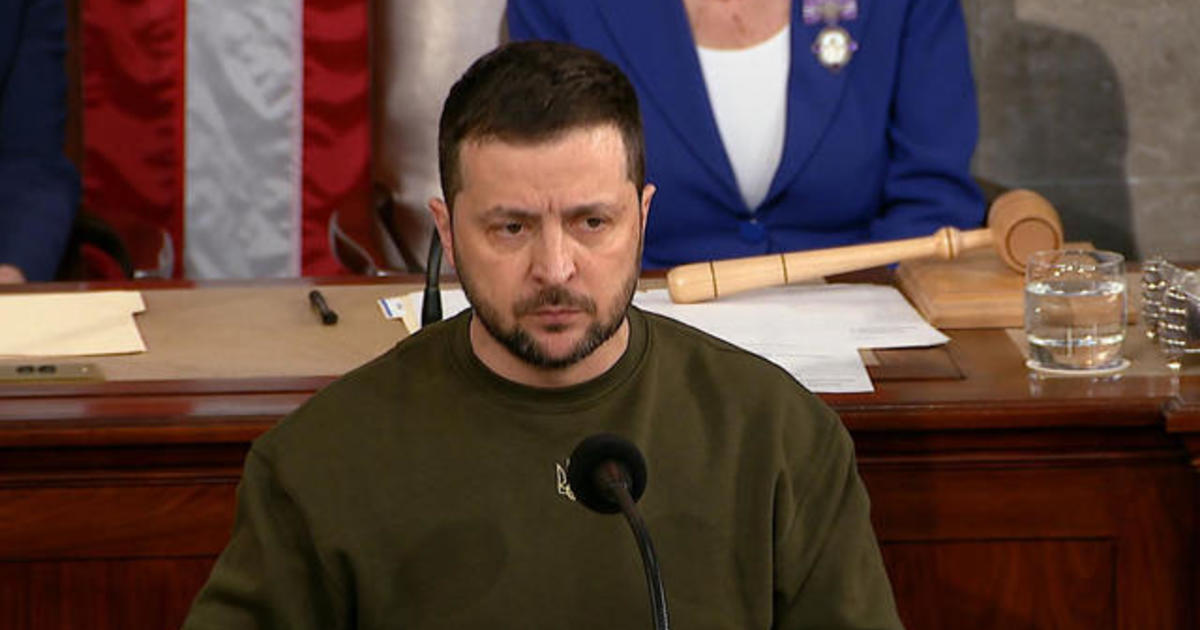Ukrainian President Volodymyr Zelenskyy expressed hopes that the war in Ukraine, which has ravaged the country for over a year, might come to a close by 2025 through diplomacy rather than continued fighting. In a recent statement, Zelenskyy highlighted that, while Ukraine’s military has grown into one of the most powerful forces in the world, it has been largely bolstered by substantial military and financial aid from Western allies, particularly the United States and European Union.
As the conflict enters its second year, Zelenskyy’s remarks underscore both the resilience and the reliance of Ukraine on external support to defend its sovereignty against Russian aggression. While the Ukrainian military’s strength has undoubtedly improved, it remains clear that international partnerships and aid are crucial in ensuring the continued effectiveness of Ukraine’s defense efforts.
Ukraine’s Military Strength and Western Support
Since Russia’s invasion of Ukraine in February 2022, Ukraine has received billions of euros in military aid packages from Western countries, including advanced weaponry, ammunition, and financial support. These packages have played a pivotal role in enabling the Ukrainian military to counter Russian forces, with numerous reports highlighting Ukraine’s improved capabilities, particularly in terms of air defense, artillery, and infantry training.
Zelenskyy acknowledged that Ukraine’s military has become “one of the strongest in the world,” but he emphasized that this strength is not solely the result of domestic resources. Much of the country’s military expansion has been made possible by the West, which continues to supply Ukraine with the tools it needs to defend itself. The U.S. has been a particularly significant ally, providing Ukraine with long-range missiles, air defense systems, and intelligence sharing, while European countries have also offered vital military aid and sanctions on Russia.
Diplomatic Hopes Amid Ongoing Conflict
Despite the growing military capabilities, Zelenskyy’s statement reflects his ongoing preference for a diplomatic resolution to the war. He stressed that Ukraine’s goal is not to continue fighting indefinitely, but to secure peace and stability through negotiations. His comments were made in the context of ongoing peace talks and diplomatic efforts, but they also come at a time when Russia has shown no signs of relinquishing its territorial ambitions in Ukraine.
For months, diplomatic negotiations have stalled, with both sides maintaining hardline positions. Ukraine has consistently called for a full Russian withdrawal from its territory, including the Crimean Peninsula, which Russia annexed in 2014. Moscow, on the other hand, has demanded that Ukraine recognize the annexation of Crimea and accept the loss of control over the Donbas region, areas where Russian-backed separatists have declared independence.
Zelenskyy’s comments about diplomacy are in line with his previous statements advocating for a negotiated peace settlement. However, he also made it clear that he would not compromise on Ukraine’s territorial integrity. The idea of a diplomatic solution remains contingent on significant shifts in Russia’s approach, which currently shows little indication of willingness to negotiate in good faith.
Challenges to Achieving Diplomacy
While Zelenskyy’s hope for diplomacy in 2025 offers a glimmer of hope for a peaceful resolution, significant challenges remain. For one, Russia’s military goals in Ukraine are not entirely clear, and President Vladimir Putin has continued to frame the war as a “special military operation” aimed at securing Russian interests in Ukraine. The annexation of Ukrainian territories by Russia, despite international condemnation, makes it difficult for meaningful peace talks to proceed.
Further complicating the situation is the geopolitical backdrop. Western countries, including the U.S., have repeatedly reiterated their support for Ukraine’s right to self-defense and sovereignty. They have pledged to continue aiding Ukraine for as long as necessary to help it repel Russian forces. While this support has bolstered Ukraine’s military, it also risks prolonging the conflict as the U.S. and European Union continue to push for a protracted resistance rather than a negotiated peace.
Additionally, public sentiment in both Ukraine and Russia has hardened over the course of the war, with little indication that either side is prepared to make the difficult compromises necessary for a peace settlement. Domestic pressures within Russia, particularly given the losses sustained by Russian forces, may make negotiations even more challenging.
The Role of Diplomacy in Achieving Peace
International diplomacy will undoubtedly play a key role in any potential resolution to the conflict. Several countries and organizations, including Turkey and the United Nations, have attempted to mediate peace talks, but have so far failed to produce any substantive results. As the war continues, the diplomatic space for negotiation may shrink, and Ukraine may face increasing pressure to agree to a deal with Russia.
Zelenskyy’s call for diplomacy aligns with a broader desire for an end to the human and economic costs of the war. However, any diplomatic solution would need to guarantee Ukraine’s territorial integrity and security in the face of continued Russian aggression. The need for a neutral third party or international peacekeeping force could become a central issue in the diplomatic framework.
Conclusion: The Path to Peace Remains Uncertain
As President Zelenskyy hopes for a diplomatic resolution to the war in Ukraine by 2025, the reality remains that significant obstacles stand in the way of peace. Ukraine’s military capabilities, supported by Western allies, have strengthened its ability to defend against Russian forces, but the ultimate outcome of the war depends on a combination of military strategy and political negotiation.
For now, Zelenskyy’s call for diplomacy reflects his desire to end the conflict without further loss of life, but it is unclear whether Russia is prepared to entertain meaningful peace talks. As the situation continues to evolve, both military and diplomatic avenues will remain in play, with the hope that international pressure and the desire for stability will ultimately lead to a lasting peace agreement.
References:
- BBC News (2024). Zelenskyy Hopes for Diplomatic Resolution to Ukraine War by 2025.
- The New York Times (2024). Ukraine’s Military Gains: How Western Aid Strengthened Its Forces.
- Al Jazeera (2024). Zelenskyy’s Peaceful Resolution Hope: Diplomacy vs. Reality of War in Ukraine.
- Reuters (2024). Ukraine President Eyes Diplomacy for Peace, Despite Strengthened Military.
- The Guardian (2024). Ukraine’s Path to Peace: Zelenskyy Pushes for Diplomacy Amid War with Russia.



